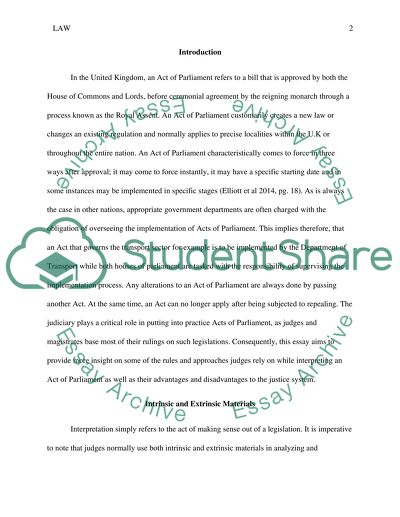Cite this document
(“Explain the different rules and approaches taken by judges when Essay - 1”, n.d.)
Explain the different rules and approaches taken by judges when Essay - 1. Retrieved from https://studentshare.org/law/1689476-explain-the-different-rules-and-approaches-taken-by-judges-when-interpreting-an-act-of-parliament-giving-examples-from-case-law-and-critically-analyse-their-advantages-and-disadvantages
Explain the different rules and approaches taken by judges when Essay - 1. Retrieved from https://studentshare.org/law/1689476-explain-the-different-rules-and-approaches-taken-by-judges-when-interpreting-an-act-of-parliament-giving-examples-from-case-law-and-critically-analyse-their-advantages-and-disadvantages
(Explain the Different Rules and Approaches Taken by Judges When Essay - 1)
Explain the Different Rules and Approaches Taken by Judges When Essay - 1. https://studentshare.org/law/1689476-explain-the-different-rules-and-approaches-taken-by-judges-when-interpreting-an-act-of-parliament-giving-examples-from-case-law-and-critically-analyse-their-advantages-and-disadvantages.
Explain the Different Rules and Approaches Taken by Judges When Essay - 1. https://studentshare.org/law/1689476-explain-the-different-rules-and-approaches-taken-by-judges-when-interpreting-an-act-of-parliament-giving-examples-from-case-law-and-critically-analyse-their-advantages-and-disadvantages.
“Explain the Different Rules and Approaches Taken by Judges When Essay - 1”, n.d. https://studentshare.org/law/1689476-explain-the-different-rules-and-approaches-taken-by-judges-when-interpreting-an-act-of-parliament-giving-examples-from-case-law-and-critically-analyse-their-advantages-and-disadvantages.


